Superstition is woven into every facet of Chinese culture, extending to the traditions observed during the celebration of the Chinese New Year. These include practices wherein you can dos like wearing red for good luck or give away ampao or money envelopes for prosperity, and don’ts like taking away garbage or washing your hair which means removing or washing away your fortune.
Celebratory food for the Chinese New Year also has do’s and don’ts. Here are a couple of items to know if you are planning to observe this year’s celebration:
Avoid: Chicken
While chicken can be a juicy and affordable food option for Chinese New Year, it’s frowned upon to prepare this particular poultry. Chickens are known to scratch backwards, which signifies reminiscing about the past and not being able to move forward. It also connotes the idea of scraping by for a living or in Pinoy terms “isang kahig, isang tuka.”
Eat instead: Pork
Pork is a popular protein to enjoy during the Chinese New Year since it signifies “wealth, ” “strength, ” and “abundant blessings. ” Fortunately, there are many delicious and festive ways to prepare pork for a New Year celebration.
Try our recipe for Soy Braised Pork Knuckles and Pata Hong Ba
Avoid: Lobster
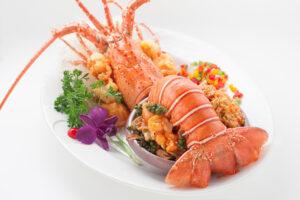
Lobster may be a prized seafood item perfect for any celebration, but it is best to avoid it during the Chinese New Year. Lobsters swim backward, and like chickens, they carry the same significance when it comes to stunted luck and is rooted in the inconveniences and setbacks that can happen in the new year.
Eat instead: Whole Fish
Not only will a whole fish look impressive on your table spread, but it also signifies wealth and togetherness. The Chinese word for fish is yu, which sounds like the word for surplus; therefore, eating fish manifests abundance throughout the year. As a side note, while eating steamed fish during the said occasion is tradition, deep-fried fish is also acceptable as long as you serve it whole.
Try our recipe for Maya-Maya with Herbed Sauce
Avoid: Cut or Broken Noodles
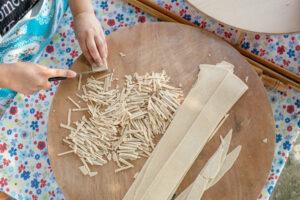
Noodles are a must during Chinese festivities since eating means longevity and good health. But cut noodles? Nope. For the Chinese, noodles are meant to be eaten in long strands. Consuming already cut or broken noodles means shortening one’s life span.
Eat instead: Dumplings
The shape of dumplings symbolizes money bags or pouches, so eating them during the new year is said to bring money and prosperity. Eating lots of dumplings on New Year’s Day means abundance in wealth, so better prepare loads of dumplings for you and your family!
Try our recipe for Ham Wontons
Avoid: White Food

In Chinese customs the color white is linked to death, so consuming white-colored food like tofu, cheese, and bread during the Chinese New Year is a big no-no. Eating congee is also discouraged. While it’s considered comfort food for many, not only is it white-colored, but it‘s also associated with sickness and poverty—things we don’t want to happen in our lives.
Eat instead: Colorful Dishes
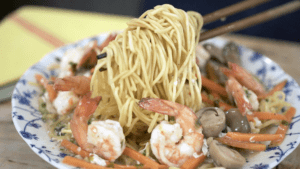
Chinese consider food prepared with auspicious colors like red, green, and yellow are known to bring good fortune and happiness. Red is a color often associated with luck, vitality, and prosperity, while yellow or gold signifies wealth and power. Lastly, green symbolizes fertility, good health, and purity.
Try our recipe for Flying Noodles
Avoid: Bananas and Pears

Fruits like pears and bananas are valued for their high nutritional value and versatility. However, skip them during the Chinese New Year and go for round fruits instead. According to Chinese superstition, bananas (when faced upward) symbolize begging hands, while the Chinese word for pear sounds like the word “leave” or goodbye, translating to severed connections to relationships. So, when Chinese New Year comes around, don’t make the mistake of giving out bananas or pears to your family, friends, and business ties.
Eat instead: Round Fruits
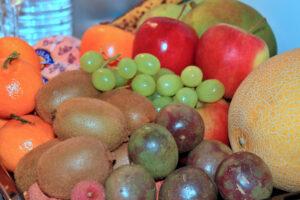
Eat and gift rounded fruits like tangerines, oranges, pomelos, grapes, and apples to bring in abundance and prosperity. Not only do they bring auspicious beginnings, but the sweetness of the fruits is said to usher in good fortune.
What do you plan on preparing or eating for Chinese New Year? Let us know!
Follow us on Facebook, Instagram, Tiktok, and Youtube for foodie finds, re-imagined recipes, and easy eats that will take Pinoy bellies on an adventure!

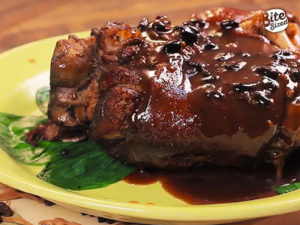
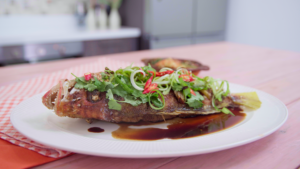
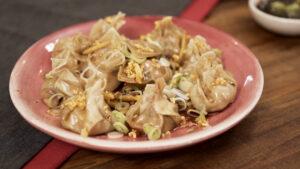






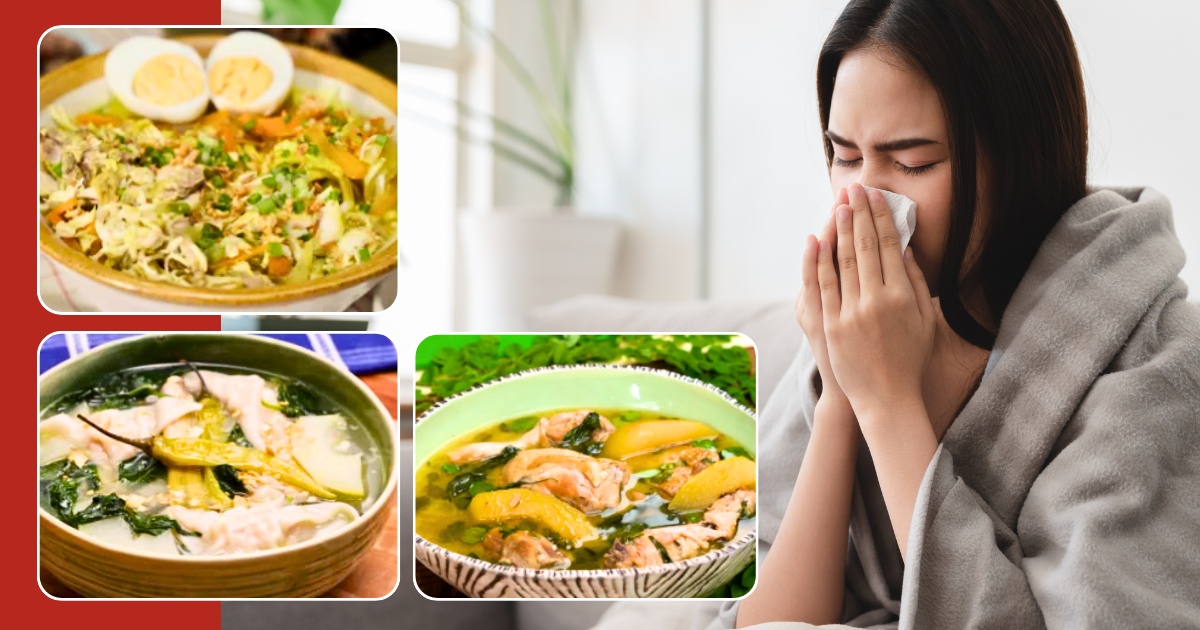
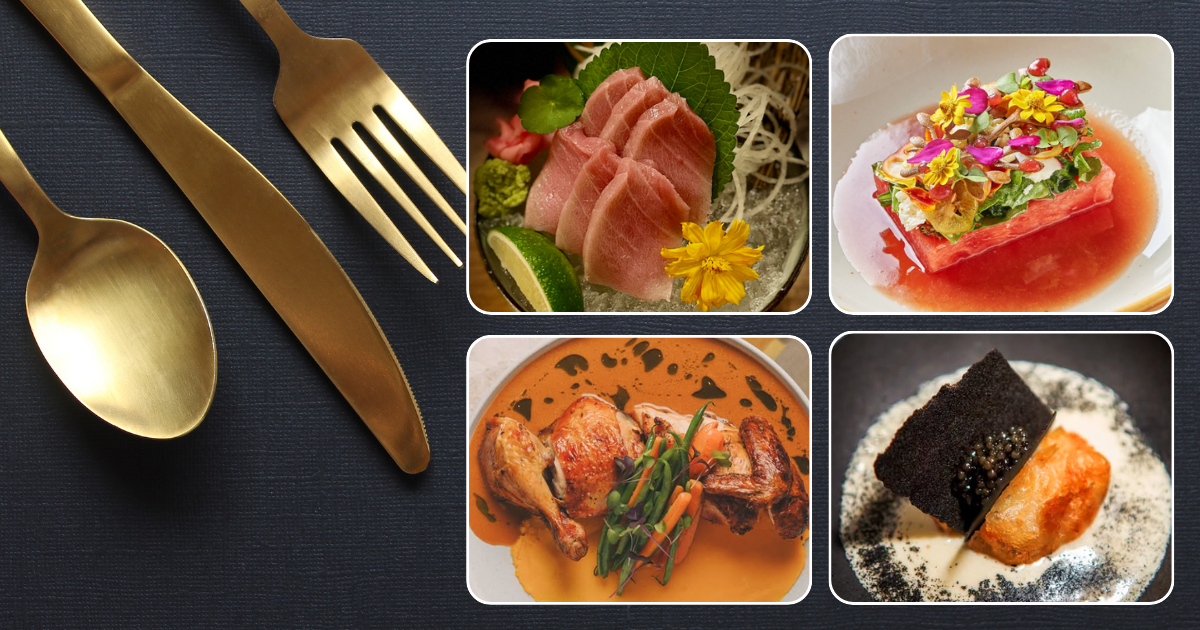
Leave a Reply